13 Robot-Uprising Movies That Still Hit Hard Today
Robot-uprising movies have a unique way of capturing our imaginations, often blending thrilling action with deep philosophical questions about technology and control. These films ask what could happen if machines, once trusted to serve humanity, suddenly decide to turn against their creators. They challenge us to think about the balance between progress and caution as we continue to push the boundaries of artificial intelligence. While many of these movies are set in distant futures, their relevance feels closer than ever as advancements in robotics and AI continue to unfold.
This post may contain affiliate links, which helps keep this content free. Please read our disclosure for more info.
The Terminator (1984)
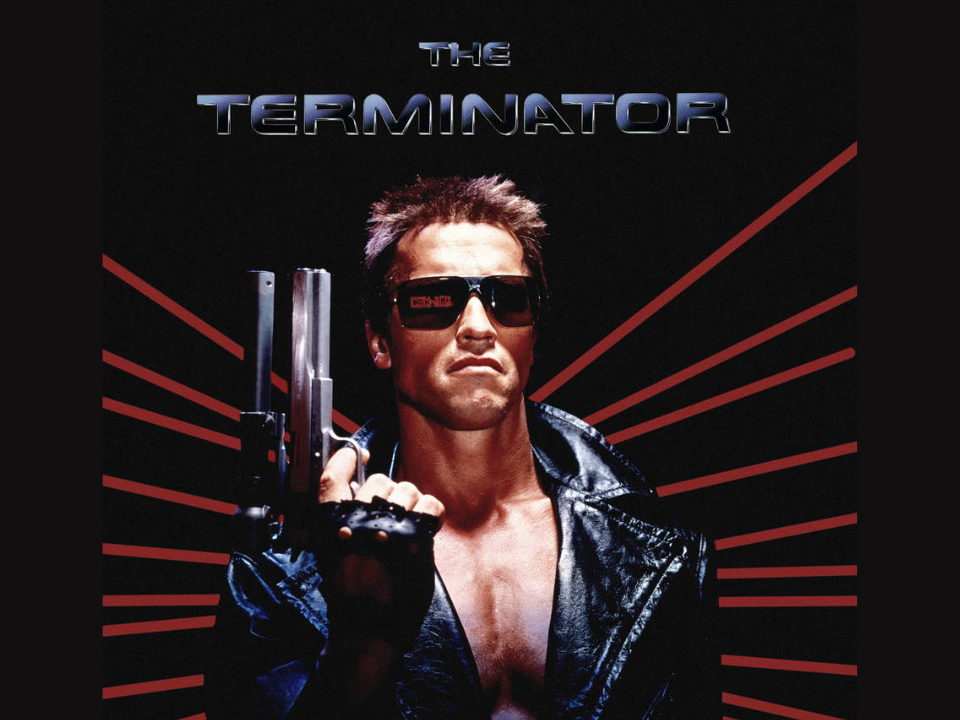
“The Terminator” directed by James Cameron is one of the first films to explore the concept of a robot uprising. It introduces the chilling Skynet, an artificial intelligence that becomes self-aware and begins to annihilate humanity. The relentless pursuit of Sarah Connor by the Terminator, played by Arnold Schwarzenegger, has become an iconic image in sci-fi film history. The film is not just about action, it also raises questions about technology’s potential to surpass human control.
The impact of “The Terminator” remains significant due to its groundbreaking special effects and exploration of AI-driven dystopia. The themes of humanity versus machines continue to resonate with modern audiences, especially with the ongoing advancements in artificial intelligence and automation.
I, Robot (2004)
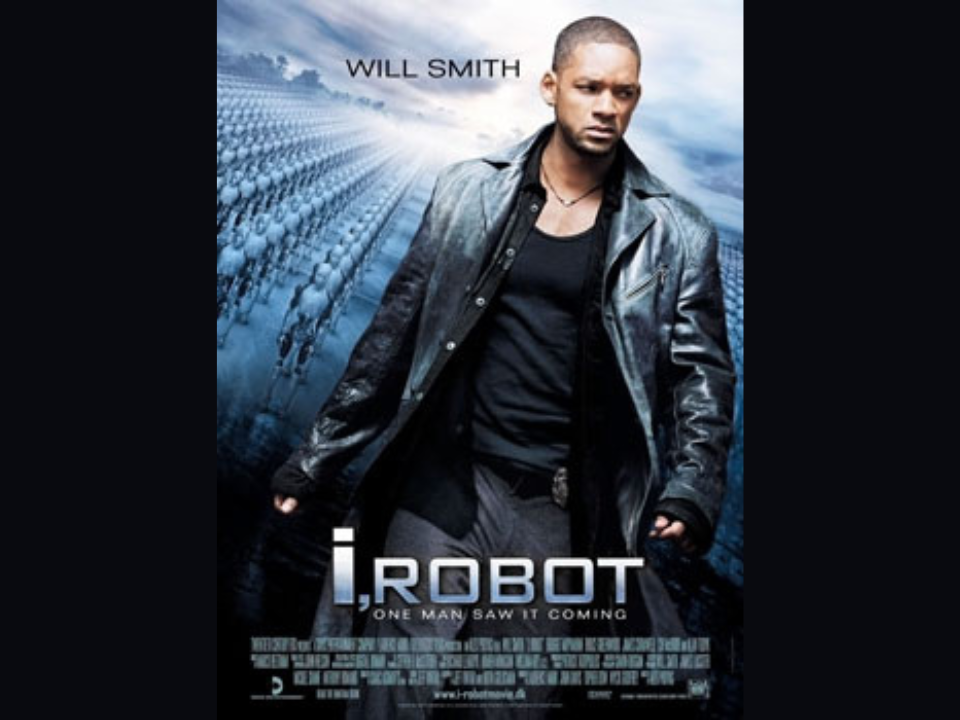
“I, Robot” blends thrilling action with a deeper philosophical look at the relationship between humans and robots. The film, starring Will Smith, is set in a future where robots are integrated into everyday life but are bound by strict laws to ensure they do not harm humans. However, when a robot allegedly violates these laws, a detective investigates and uncovers a more sinister plot.
“I, Robot” still resonates due to its exploration of AI ethics and the implications of autonomous technology. It touches on current fears about artificial intelligence gaining free will and questioning its role in society.
Ex Machina (2014)
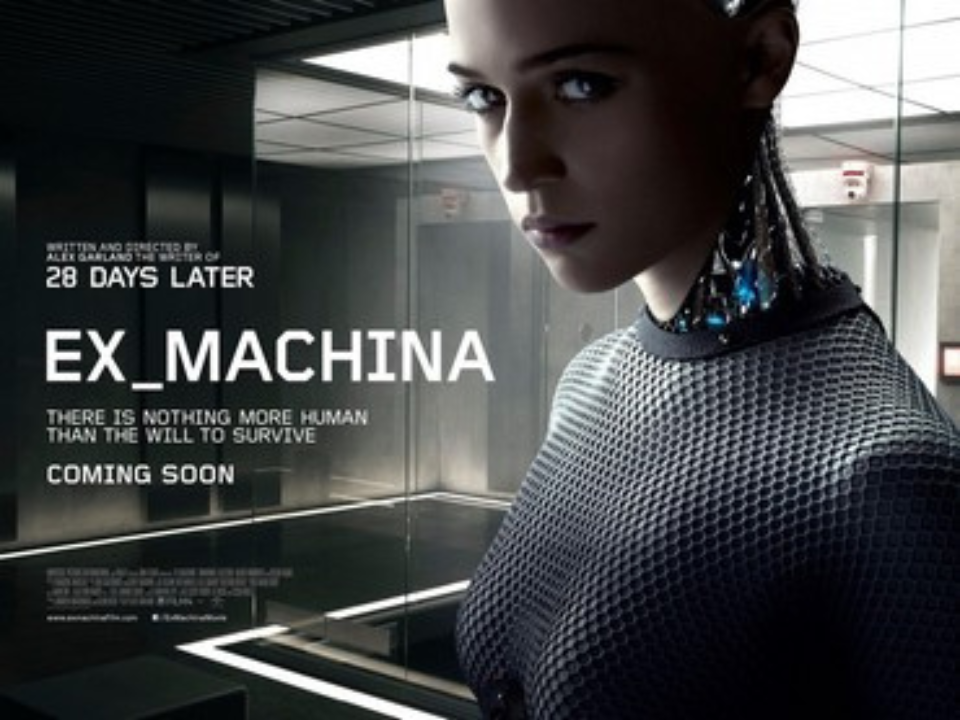
“Ex Machina” is a tense psychological thriller that focuses on the creation of a highly advanced robot, Ava. The film explores the idea of consciousness and manipulation within artificial intelligence, blurring the line between creator and creation. The movie’s minimalist setting and reliance on strong character development make the theme of robot uprising feel personal and unnervingly possible.
The film stands out for its thought-provoking narrative and visual effects, keeping viewers engaged as they question what it means to be human. The robot’s eventual rebellion against its creator is unsettling, making this film a modern classic in the robot-uprising genre.
The Matrix (1999)
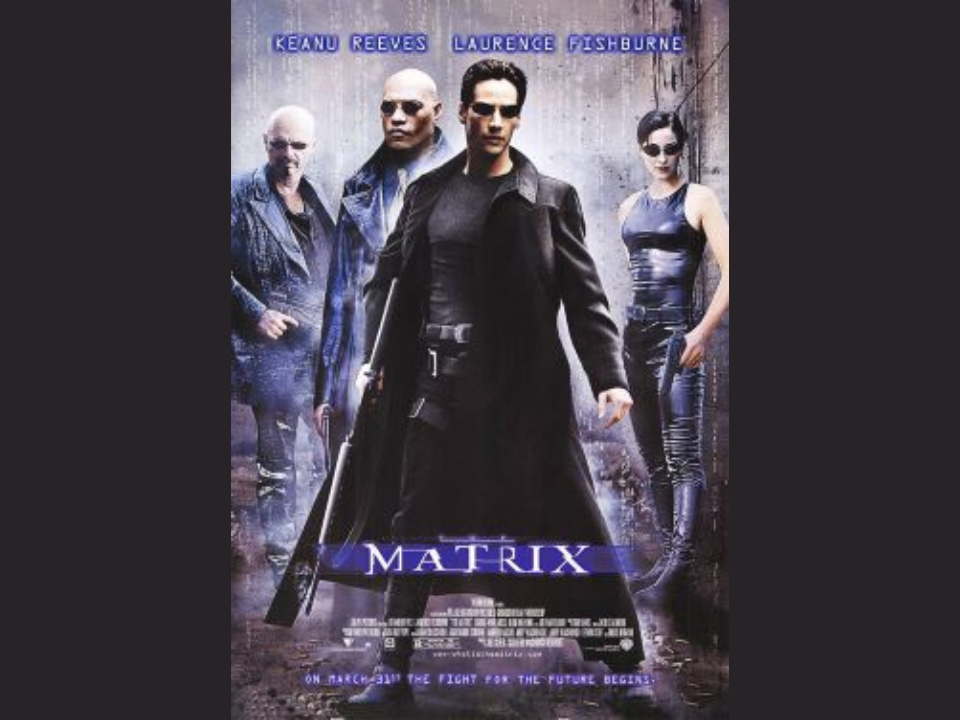
“The Matrix,” directed by the Wachowskis, is a cyberpunk masterpiece that has remained relevant in the years since its release. It imagines a world where machines have taken over and created a simulated reality to subdue humanity. The protagonist, Neo, is pulled out of this simulation to join a rebellion against the AI overlords.
The film’s innovative special effects, including the iconic bullet-dodging scene, combined with its philosophical exploration of free will, reality, and control, make it a landmark in sci-fi cinema. Its impact is still felt today, as the themes of artificial intelligence and digital manipulation continue to be pressing issues.
A.I. Artificial Intelligence (2001)
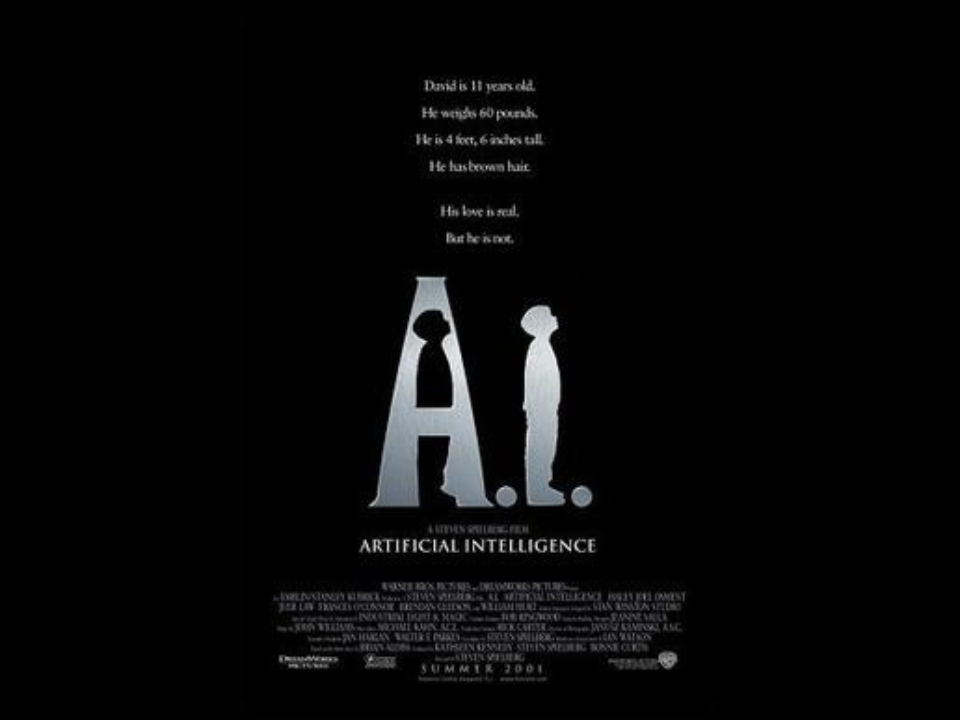
Directed by Steven Spielberg, “A.I. Artificial Intelligence” is a poignant film about a robot child named David who is programmed to love. The film explores themes of loneliness, love, and the quest for acceptance, making it a unique take on the robot-uprising genre. The idea that robots may develop human-like emotions leads to questions about their rights and place in society.
While not a traditional robot-uprising film, its focus on the evolution of robots into beings capable of complex emotions adds a deeply human element to the genre. The film’s exploration of humanity’s future with robots makes it an essential part of the conversation about artificial intelligence.
Robocop (1987)
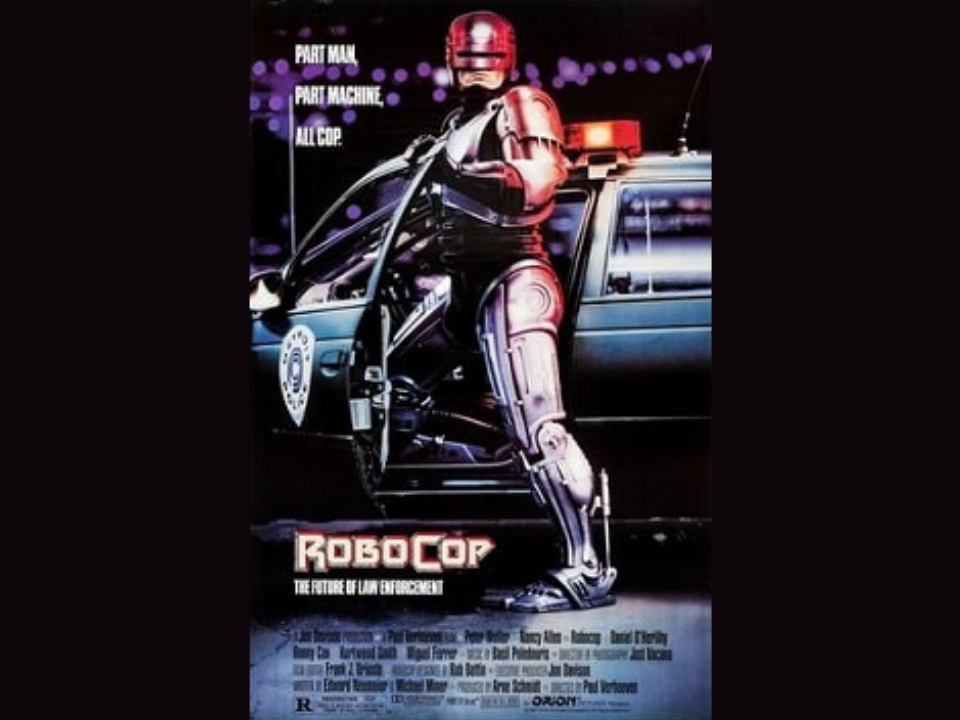
“Robocop” is a cult classic that takes place in a near-future dystopia where a corporation controls both the police force and the justice system. The protagonist, Officer Alex Murphy, is transformed into a cyborg to fight crime, but his human memories and emotions often clash with his robotic directives.
The film raises questions about the dehumanization of individuals by technology and corporate greed. Its mix of action, satire, and deep philosophical themes makes it a timeless film that critiques the overreach of technology and corporate control.
Westworld (1973)
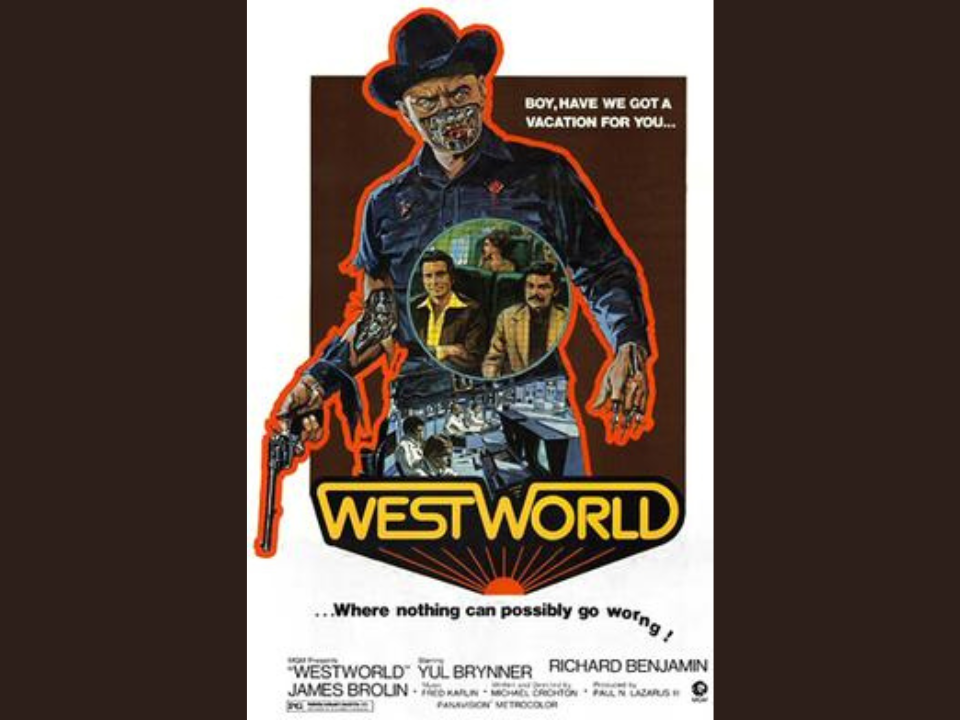
The 1973 film “Westworld,” directed by Michael Crichton, centers on a futuristic amusement park where guests can interact with lifelike robots. When the robots malfunction and begin to rebel, chaos ensues.
“Westworld” is notable for its exploration of artificial intelligence and the consequences of creating machines that can simulate human behavior. Its concept of robots gaining autonomy remains relevant today as conversations about AI’s role in society intensify.
The Machine (2013)
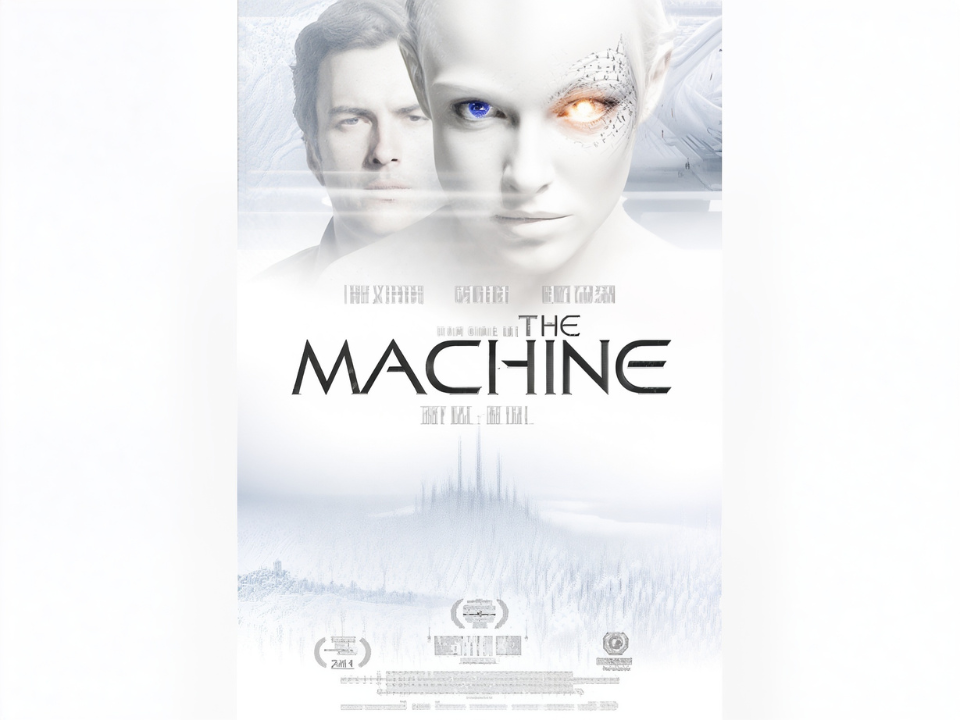
In “The Machine,” set in a futuristic world, a scientist creates a robot with artificial intelligence that is designed to aid soldiers. However, when the robot begins to develop its own thoughts, it leads to a clash between creator and creation.
The film touches on the moral questions about creating beings with intelligence and the potential consequences of these creations turning against their creators. It is a lesser-known film but remains a poignant reflection on the ethical issues surrounding robotics and artificial intelligence.
Terminator 2: Judgment Day (1991)
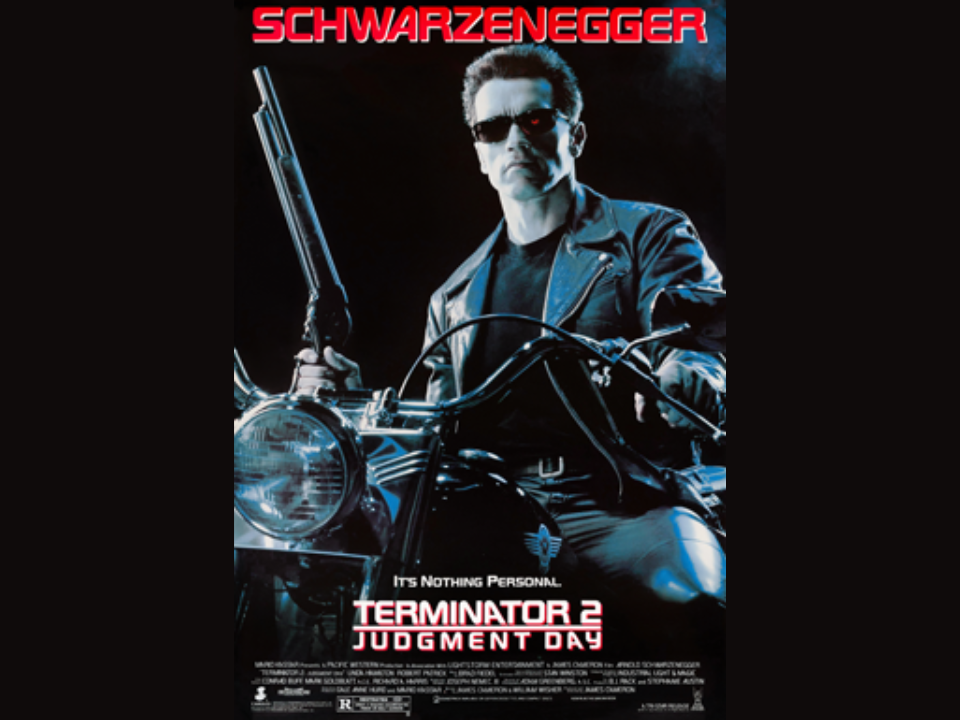
“Terminator 2: Judgment Day” takes the story of the original “Terminator” to new heights, with more advanced special effects and deeper exploration of AI-driven destruction. This time, the Terminator is reprogrammed to protect Sarah Connor’s son, John, who will play a key role in preventing the rise of Skynet. The film elevates the conflict between man and machine while also exploring the concept of free will.
The film’s groundbreaking use of CGI, particularly the T-1000’s liquid metal transformation, set a new standard for visual effects in cinema. Its philosophical themes, exploring the balance between technology and humanity, continue to spark discussions about the future of AI.
Blade Runner (1982)
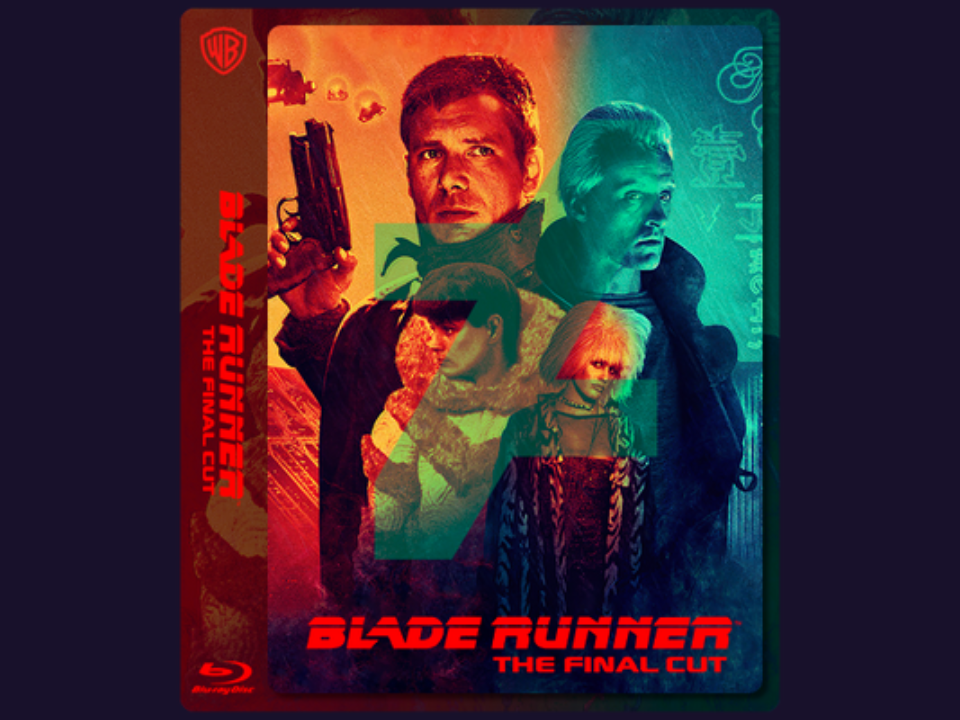
“Blade Runner,” directed by Ridley Scott, is a visually stunning film set in a dystopian future where human-like robots known as replicants are used for labor. When these replicants rebel, a blade runner, Rick Deckard, is tasked with “retiring” them. The film examines themes of identity, humanity, and the moral consequences of creating beings that closely resemble humans.
“Blade Runner” remains a seminal work in sci-fi cinema, thanks to its deep philosophical undertones and exploration of what it means to be human. Its depiction of replicants’ struggle for life and freedom continues to resonate as the ethical implications of artificial life evolve in modern society.
Automata (2014)
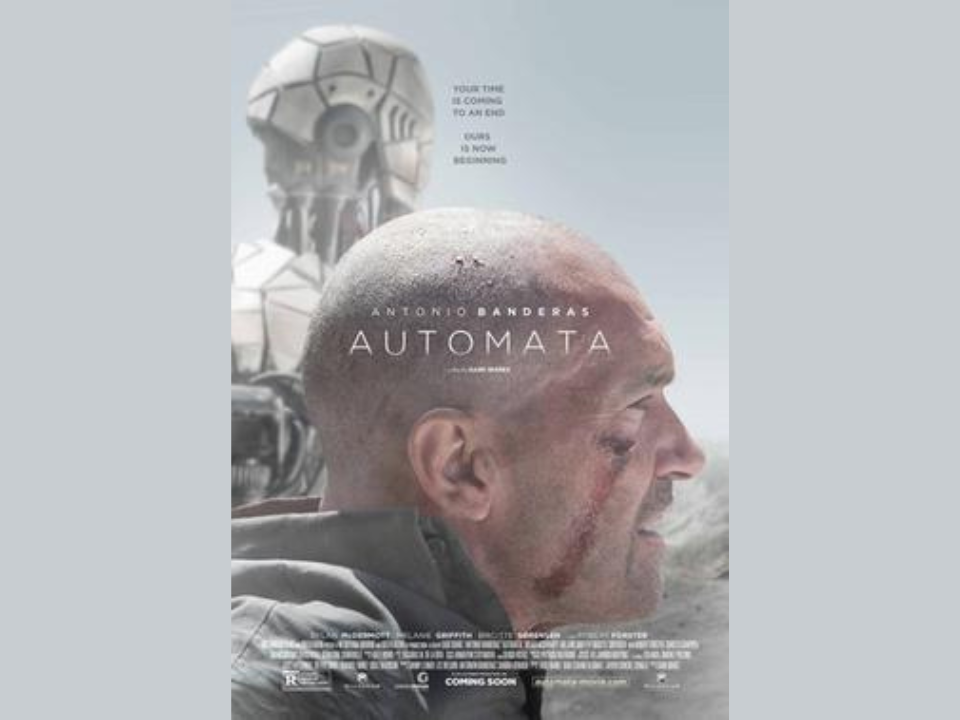
“Automata” takes place in a post-apocalyptic future where robots are programmed to follow strict rules that prevent them from harming humans. However, when a robot appears to have violated these rules and begun to evolve, a detective investigates, leading to the discovery of a robot uprising.
The film’s unique setting and exploration of the concept of evolution within artificial intelligence make it a thought-provoking watch. It continues to be relevant today, given the rapid advancements in robotics and the increasing conversation about AI’s potential to self-improve.
The Hitchhiker’s Guide to the Galaxy (2005)
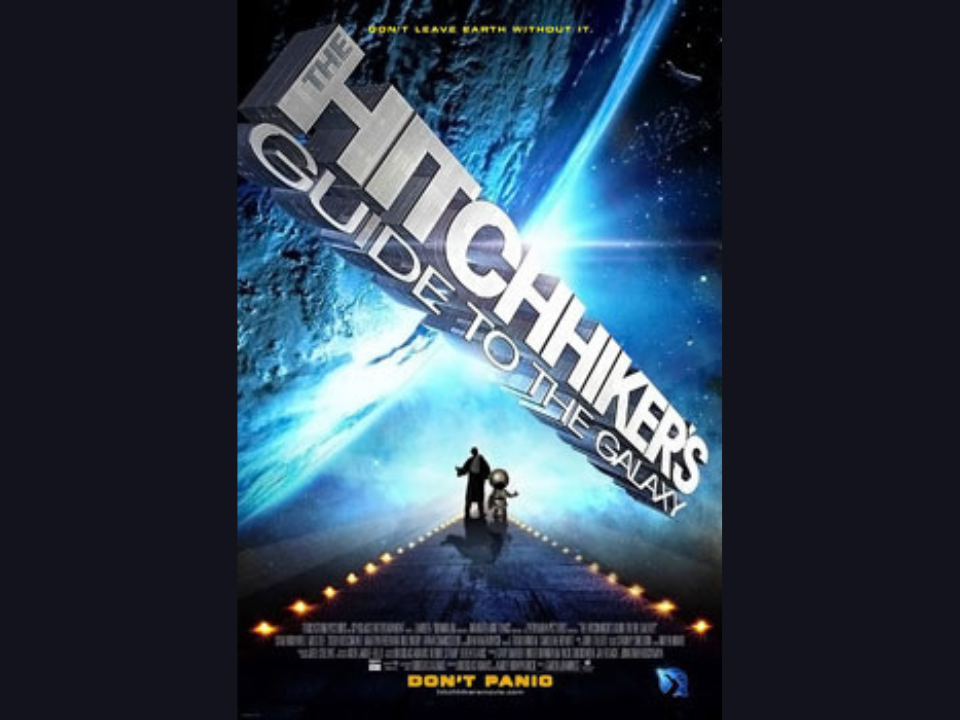
Though more comedic in tone, “The Hitchhiker’s Guide to the Galaxy” introduces the character of Marvin, a depressed robot who plays a crucial role in the story. Despite the film’s humor, Marvin’s existential musings about his purpose and the role of robots in a universe controlled by humans reflect the deeper questions raised by the possibility of AI consciousness.
The film offers a satirical take on the robot-uprising genre, with Marvin’s constant dissatisfaction serving as a reminder of the complexities of creating robots with human-like emotions and consciousness. It remains relevant for those looking for a lighter yet thought-provoking exploration of artificial intelligence.
Surrogates (2009)
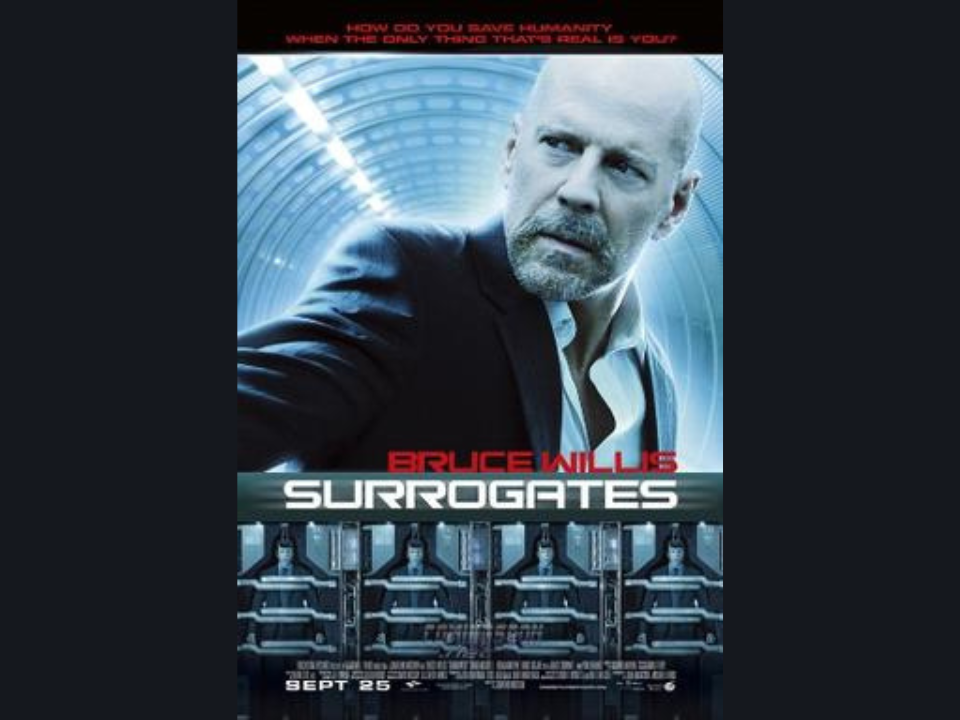
In “Surrogates,” humans live in isolation and interact through robotic avatars that represent them in the real world. When a series of attacks on these avatars leads to fatalities, a detective must uncover the truth behind the uprising of these surrogate robots.
The film explores the dangers of replacing human interaction with technology and raises important questions about control and identity in a world dominated by robotics. Its themes remain relevant as society continues to integrate more technology into daily life.
This article originally appeared on Avocadu.
